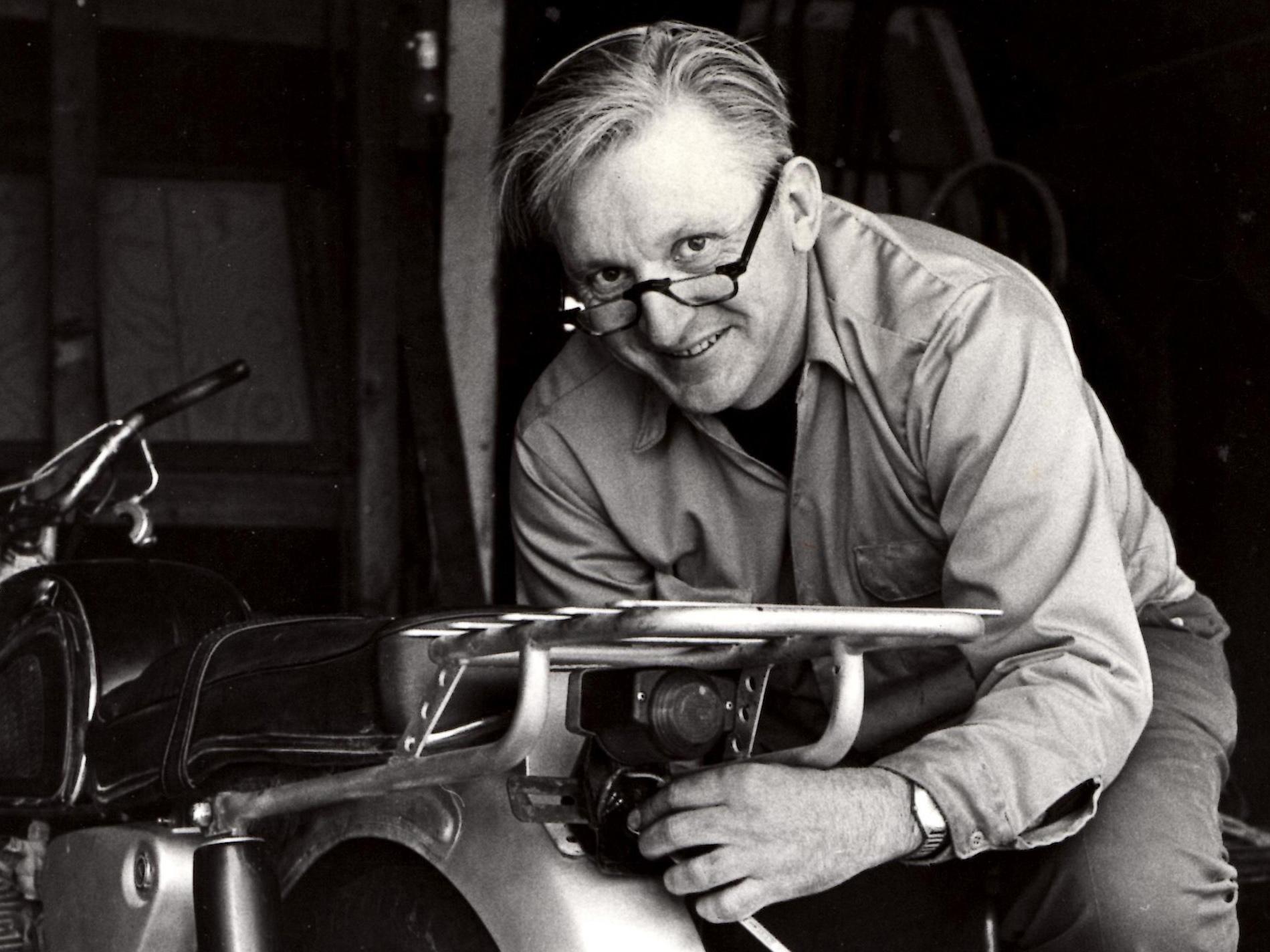Robert M. Pirsig dead: Cult author of Zen and the Art of Motorcycle Maintenance dies, aged 88
Writer best known for metaphysical odyssey and counter-culture staple published in 1974 passes away at home in Maine

Your support helps us to tell the story
From reproductive rights to climate change to Big Tech, The Independent is on the ground when the story is developing. Whether it's investigating the financials of Elon Musk's pro-Trump PAC or producing our latest documentary, 'The A Word', which shines a light on the American women fighting for reproductive rights, we know how important it is to parse out the facts from the messaging.
At such a critical moment in US history, we need reporters on the ground. Your donation allows us to keep sending journalists to speak to both sides of the story.
The Independent is trusted by Americans across the entire political spectrum. And unlike many other quality news outlets, we choose not to lock Americans out of our reporting and analysis with paywalls. We believe quality journalism should be available to everyone, paid for by those who can afford it.
Your support makes all the difference.Robert M. Pirsig, whose philosophical novel Zen and the Art of Motorcycle Maintenance became a million-selling classic and cultural touchstone after more than 100 publishers turned it down, died Monday at age 88.
Pirsig's publishing house, William Morrow, announced that he died at his home in South Berwick, Maine. He had been in failing health.
Zen and the Art of Motorcycle Maintenance was published in 1974 and was based on a motorcycle trip Pirsig took in the late 1960s with his 12-year-old son, Chris.
Like a cult favourite from the 1950s, Jack Kerouac's On the Road, the book's path to the best-seller list was long and unlikely. It began as an essay he wrote after he and Chris rode from Minnesota to the Dakotas and grew to a manuscript of hundreds of thousands of words.
After the entire industry seemed to shun it, William Morrow took on the book, with editor James Landis writing at the time that he found it “brilliant beyond belief.”
Pirsig's novel was in part an ode to the motorcycle and how he saw the world so viscerally travelling on one, compared to the TV-like passivity of looking out at the window of a car.
Zen and the Art of Motorcycle Maintenance ideally suited a generation's yearning for the open road, quest for knowledge and scepticism of modern values, while also telling a personal story about a father and son relationship and the author's struggles with schizophrenia.
A world traveller and former philosophy student, Pirsig would blend his life and learning, and East and West, into what he called the Metaphysics of Quality.
“But some things are better than others, that is, they have more quality,” he wrote. “But when you try to say what the quality is, apart from the things that have it, it all goes poof! There's nothing to talk about. But if you can't say what Quality is, how do you know what it is, or how do you know that it even exists? If no one knows what it is, then for all practical purposes it doesn't exist at all. But for all practical purposes it really does exist.”
The book was praised as a unique and masterful blend of narrative and philosophy and was compared to Moby Dick by New Yorker critic George Steiner, who wrote that Pirsig's story “lodges in the mind as few recent novels have.” Writing in The New York Times, Edward Abbey was unsure how to categorise the book.
“Is Zen and the Art of Motorcycle Maintenance a novel or an autobiography?” he wondered. “In this case the distinction seems of no importance; maybe it never was. Call the book, as Pirsig himself does, an inquiry. Therein lies its singular energy and force.”
Pirsig's response to his unexpected success was to step away from it. He avoided interviews and took 17 years to complete Lila: An Inquiry Into Morals, the sequel to his best-seller.
“It is not good to talk about Zen because Zen is nothingness,” he told The Guardian in 2006. “If you talk about it you are always lying, and if you don't talk about it no one knows it is there.”
A native of Minneapolis, Pirsig was a prodigy who at age 9 scored 170 on an IQ test and six years later graduated from high school. Army service in Korea at the end of World War II exposed him to Eastern thought and culture and profoundly influenced him.
He studied philosophy at the University of Minnesota, travelled to India and back in the states honed an enigmatic teaching style at Montana State College and at the University of Illinois, sometimes refusing to grade papers or asking students to grade each other.
At the same time, he suffered from anxiety so paralysing that one day he was in a car with Chris and lost his way, needing his son to guide him home.
“I could not sleep and I could not stay awake,” he told The Guardian. “I just sat there cross-legged in the room for three days.”
Pirsig is survived by his wife, Wendy; son, Ted; daughter, Nell Peiken, and son-in-law, Matthew Peiken, along with three grandchildren.
Chris was killed by a mugger in 1979, and later editions of Zen and the Art of Motorcycle Maintenance would include an afterword about him. The author told The Guardian his son had not cared for the book.
“He said, 'Dad, I had a good time on that trip. It was all false,'” Pirsig explained. “It threw him terribly. There is stuff I can't talk about still.”
Associated Press
Join our commenting forum
Join thought-provoking conversations, follow other Independent readers and see their replies
Comments